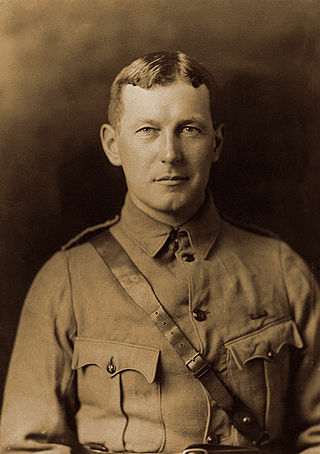Related Research Articles

John Edward Masefield was an English poet and writer, and Poet Laureate from 1930 until 1967. Among his best known works are the children's novels The Midnight Folk and The Box of Delights, and the poems The Everlasting Mercy and "Sea-Fever".

Wallace Stevens was an American modernist poet. He was born in Reading, Pennsylvania, educated at Harvard and then New York Law School, and spent most of his life working as an executive for an insurance company in Hartford, Connecticut. He won the Pulitzer Prize for Poetry for his Collected Poems in 1955.

Maxwell "Bogey" Bodenheim was an American poet and novelist. A literary figure in Chicago, he later went to New York where he became known as the King of Greenwich Village Bohemians. His writing brought him international notoriety during the Jazz Age of the 1920s.

Edgar Lee Masters was an American attorney, poet, biographer, and dramatist. He is the author of Spoon River Anthology, The New Star Chamber and Other Essays, Songs and Satires, The Great Valley, The Serpent in the Wilderness, An Obscure Tale, The Spleen, Mark Twain: A Portrait, Lincoln: The Man, and Illinois Poems. In all, Masters published twelve plays, twenty-one books of poetry, six novels and six biographies, including those of Abraham Lincoln, Mark Twain, Vachel Lindsay, and Walt Whitman.

Juan Ramón Jiménez Mantecón was a Spanish poet, a prolific writer who received the 1956 Nobel Prize in Literature "for his lyrical poetry, which in the Spanish language constitutes an example of high spirit and artistic purity". One of Jiménez's most important contributions to modern poetry was his advocacy of the concept of "pure poetry".
Marilyn Hacker is an American poet, translator and critic. She is Professor of English emerita at the City College of New York.

War poetry is poetry on the topic of war. While the term is applied especially to works of the First World War, the term can be applied to poetry about any war, including Homer's Iliad, from around the 8th century BC as well as poetry of the American Civil War, the Spanish Civil War, the Crimean War and other wars. War poets may be combatants or noncombatants.

Harold Witter Bynner, also known by the pen name Emanuel Morgan, was an American poet and translator. He was known for his long residence in Santa Fe, New Mexico, and association with other literary figures there.
Ted Berrigan was an American poet.
—From Robert Frost's "Stopping by Woods on a Snowy Evening", first published this year in his collection New Hampshire
Nationality words link to articles with information on the nation's poetry or literature.
Nationality words link to articles with information on the nation's poetry or literature.
Nationality words link to articles with information on the nation's poetry or literature.

Nationality words link to articles with information on the nation's poetry or literature.
Nationality words link to articles with information on the nation's poetry or literature.

The Holy Sonnets—also known as the Divine Meditations or Divine Sonnets—are a series of nineteen poems by the English poet John Donne (1572–1631). The sonnets were first published in 1633—two years after Donne's death. They are written predominantly in the style and form prescribed by Renaissance Italian poet Petrarch (1304–1374) in which the sonnet consisted of two quatrains and a sestet. However, several rhythmic and structural patterns as well as the inclusion of couplets are elements influenced by the sonnet form developed by English poet and playwright William Shakespeare (1564–1616).
Mitchell Starrett Buck was an American poet, translator and classical scholar. His volumes of verse and prose poetry were deeply influenced by 1890s aestheticism as well as classical Greek and Roman Literature. His work Syrinx: Pastels of Hellas, which was published by his friend Donald Evans on his Claire Marie Press in 1914, was praised by H.L. Mencken who remarked that Syrinx contained "a series of Grecian rhapsodies in rhythmic prose, many of them of considerable beauty." Buck also published prose works and a biography of Casanova.
Allen Norton (1878?-1945?) was an American poet and literary editor of the 1910s and 20s. His father, E.L. Norton, was a stock broker. He went to Harvard, where he specialized in literature and began writing poetry. He and his wife Louise Norton edited the little magazine Rogue, published from March 1915 to December 1916. The periodical, partly financed by Walter Conrad Arensberg, served as an early showcase for the work of Arensberg himself, Wallace Stevens, Mina Loy, and Alfred Kreymborg. Norton's 1914 volume of verse, Saloon Sonnets With Sunday Flutings, was published by Donald Evan's Claire Marie Press. Heavily influenced by fin-de-siècle aestheticism, Alice Corbin Henderson remarked that his work, along with the poetry of Evans himself, represented something of a revival of that style. Poems in the volume included Impressions of Oscar Wilde, Modern Love and Mrs. Eddy: a Mask.

William Stanley Beaumont Braithwaite was an African-American writer, poet, literary critic, anthologist, and publisher in the United States. His work as a critic and anthologist was widely praised and important in the development of East Coast poetry styles in the early 20th century. He was awarded the Spingarn Medal in 1918.
References
- Cook, Howard Willard. Our Poets of Today. Moffat, Yard & Company, 1918.